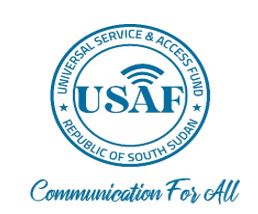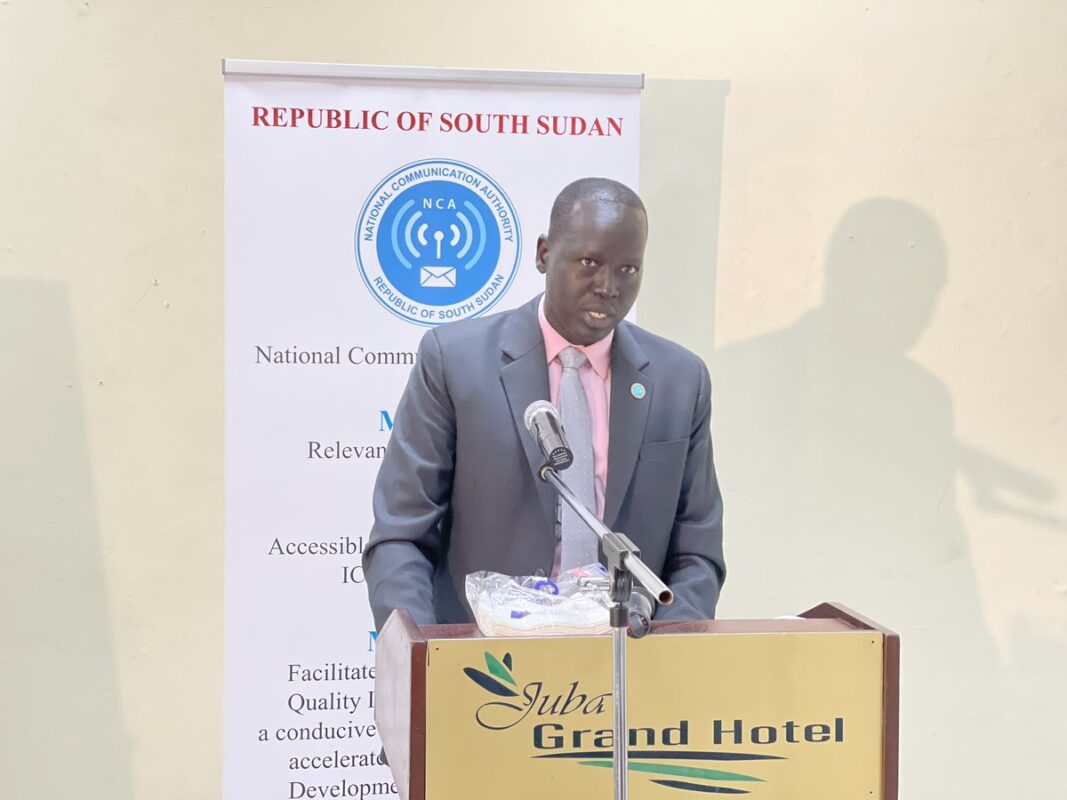The Republic of South Sudan celebrated 12 years years of independence on 9th July 2023. This young fertile, mineral rich nation has the potential to rapidly achieve national development goals through agriculture, manufacturing and digital transformation. Digital transformation of South Sudan would spur growth in other sectors through data management, digital infrastructure, applications, cross cutting, human resource development, digital skills and digital marketing of the opportunities. As outlined by our Director at Mafichoni, Eng. Wainaina Mungai, the promise of transformation would require a progressive policy and regulatory environment for the telecommunications and ICT sector.
The telecommunications sector in South Sudan has registered growth and evolution towards stability in the recent past anchored on an emerging and responsive policy, legal and regulatory environment. Upon its independence in 2011, South Sudan inherited limited and defunct telecommunications infrastructure and a deficient operating and regulatory framework. The progress towards predictable regulation may be traced back to the inauguration of the regulator – National Communication Authority (NCA) – in 2015 and institutional governance reforms that followed. The NCA was established after the enactment of the National Communication Act in 2012, which resulted from the repeal of pre-independence policies and legislation. Annual stakeholder consultations in the form of publicly broadcasted TownHall Meetings led by the regulator have been lauded as avenues for addressing licensee and consumer concerns. During the third Town Hall Meeting in November 2022, the regulator revealed that the Information Ministry is considering the establishment of a National ICT Authority (NICTA) to regulate the government’s procurement of ICT equipment. This initiative is aimed at complementing the enforcement of the Cybercrime and Computer Misuse Provisional Order, 2021 with increased security for government data and infrastructure.
The consolidation of the sector regulatory framework continues to benefit from adoption and enforcement of regional and international obligations, standards and specification as required by Article 90 of the Act. The gains are demonstrated by the membership into the ITU resulting in the international dialing code, and support for regulatory changes and capacity development for spectrum management. Further, through the Africa Union (AU), regulatory capacity building with support from the Africa Telecommunications Union (ATU), inclusion into the single digital market for East Africa as part of the East Africa Community (EAC) and development of regulatory best practice through participation in the East Africa Communication Organisation (EACO). Further to the enactment of the Cybersecurity law, South Sudan should anchor its cybersecurity and data governance, ratifying the AU’s Malabo Convention and upscale regulatory capacity development by becoming a member of the Africa Advanced Level Telecommunications Institute (AFRALTI).
According to the regulator, there are 24 active Internet Service Providers (ISPs) and three Mobile Network Operators (MBOs) that delivered the 7 per cent internet penetration and 3.58 million mobile phone users as at February 2023. This telecommunications access gap in the country has encouraged increasing investment in internet infrastructure resulting in growth of fiber optic backbone infrastructure providers from one in January 2020 to three as of July 2023. These licensees are required to contribute two percent of their annual revenues to the Universal Service and Access Fund (USAF) that draws its mandate from article 73 of the National Communication Act 2012.
The continued direct investment and pricing regulation is a balancing act between delivering access and affordability, developing local capacity and consumer protection without limiting the benefits of liberation. Further, the ongoing development of critical infrastructure such as the Data Centre and the South Sudan Internet Exchange Point (IXP), and the national’s international telephony gateway by the regulator are expected to support local hosting, peering between ISPs, delivery of international bandwidth and e-government services. The regulator further mobilized funding for restoration of transmission towers rendered unusable after years of conflict. The latter efforts by the regulator are in line with the Revised South Sudan National Development Strategy 2021-2024 that prioritizes government’s investment in ICT and its support to private investors under the Governance cluster and Infrastructure cluster, respectively. According to the Bertelsmann Stiftung’s Transformation Index (BTI) 2022, South Sudan is an emerging market and the government aims to create a conducive environment for investors (internal and external).

The legal framework clearly stipulates the approach the independent regulator is to take in administering interconnection, spectrum management, pricing, numbering, technical standards and consumer protection. The regulator is also developing a Strategy anchored on four pillars of Connectivity, Digital Literacy, Competition and compliance, International liaisons, Memberships and Partnerships. The regulator has taken steps to encourage local ownership in place of state ownership through Public-Private Partnerships (PPP) while limiting regulatory capture. To deliver the Strategy, NCA should pursue the planned review of the National Communication Act to avoid ambiguity in interpretation and facilitate enforceable regulatory guidelines. For instance, noting that Article 3 of the Act stipulates “the purpose is to establish the Communication Authority and provide for its powers, functions and duties, structures, composition, finances and other related matters”, the USAF was instituted in June 2019 as a Fund under NCA. This relationship between the USAF and the NCA is of importance against the backdrop of funding support for long-awaited infrastructure development.

In delivering on its public interest an effective USAF is critical in a market where competition is not effective. Coordination under the NCA ensures identification of priorities and minimizes the duplication of efforts towards universal service that is set to include Digital libraries, digital literacy, capacity development for institutions, the rollout of Metro Networks in cities and extension of rural coverage.
There have however been compliance challenges where revenue has been withheld by operators whose operations were previously not effectively monitored. This has resulted in license withdrawal for some mobile network operators and the restructuring of the South Sudan International Gateway. The enforcement of fiber optic infrastructure implementation guidelines led to temporary withdrawal of a license for one backbone provider. Further enforcement gains may accrue from Regulatory Collaboration with the planned NICTA, Ministries, Departments and Agencies (MDAs) responsible for regulating competition, trade, customs and content.
With the reality of technological convergence the regulator will need to extend the collaboration and harmonization with Media Council and the South Sudan Broadcasting Corporation (SSBC) to regulate broadcasting, spur Digital TV migration, Digital Sound Broadcasting and develop guidelines for New Media such as OTT. These will include VoIP, IPTV and social media. In this context, the role of the Media Authority would be content regulation and development while the SSBC would serve as a Public Broadcaster. Electronic Communication Services, ICT and Postal services.

